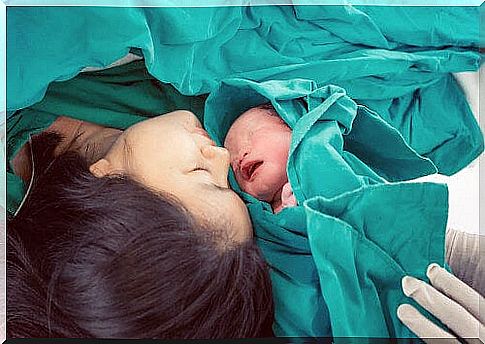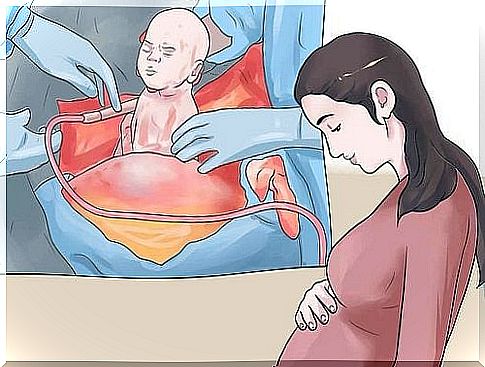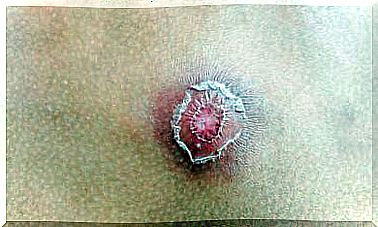Natural Childbirth Or Caesarean Section?

Pregnant women very often face the decision whether to choose Caesarean section or natural birth. Depending on the case, there may be many doubts.
Some mothers use the traditional method because they want to have their babies conventionally and as naturally as possible. Others, in turn, prefer to control as many variables as possible and therefore decide to undergo a caesarean section.
Natural childbirth is a completely normal and beautiful process, but many women avoid it for fear of feeling great pain or irreversible damage to the vagina.
Functionally, a cesarean section is an unbelievable operation. Sometimes this may be the only way for medical reasons to save the lives of mother and child.
Is a cesarean section better than a natural birth?
The way a baby comes into the world, whether by caesarean section or by natural birth, is the decision of the future parents. However, always seek medical advice first.
It is best, of course, to consult an obstetrician specialist who monitors your pregnancy and will be present during the birth. It is he who is responsible for determining the ideal method according to the characteristics of the mother, child and each specific situation.
In addition, you should bear in mind that this decision can suddenly change when it’s time to give birth. This usually happens when a natural vaginal delivery is scheduled first, but due to the risk, the doctor decides to have a caesarean section.
Natural childbirth and caesarean section – differences
The big difference between natural childbirth and cesarean delivery is that a cesarean is a surgical intervention that lasts from 20 to 30 minutes.
If it is scheduled, it should not be performed before 39 weeks of pregnancy, unless your doctor tells you otherwise due to some risk.
Physical differences
“What is less painful, caesarean section or natural delivery?” This doubt about childbirth is very common among mothers who are about to give birth for the first time.
In surgery, unlike vaginal delivery, there is no dilation. Therefore, pain in labor is not associated with a cesarean section.
Its action lasts from an hour to an hour and a half. Pain is controlled 24 to 48 hours after cesarean delivery with intravenous analgesics and anti-inflammatory drugs.
Differences in terms of the immune system
Before birth, babies are practically sterile. This means they don’t have any bacteria in their body. However, some bacteria are essential for the proper functioning of organs. When a baby is born naturally, the mother transmits beneficial bacteria to her during labor.

Conversely, if a cesarean section is performed, the baby will not receive this load of bacterial flora from the mother. In general, during the procedure, the newborn absorbs bacteria from the environment in which it is born, including, in addition to its mother, other people around it. Since these people are unfamiliar with their immune system, it can weaken the child’s immunity.
A study by the University of Copenhagen found that caesarean section causes a long-term deficit of key factors necessary to prevent immune disease.
Differences in recovery
Both after a cesarean section and after a natural birth, a woman needs plenty of rest for her body to recover.
This means that it can only do minor housework, and sometimes it can’t even do any. Also, if she has other young children, she shouldn’t run after them.
The postnatal period can be one of the most difficult for mothers and their families. However, this stage can be even more complex for women who have had a caesarean section.
In both cases, the young mother should rest and avoid lifting weights. When it comes to natural childbirth, the pain wears off relatively quickly. However, after a cesarean section, it may take more days or even weeks. A caesarean section involves a full surgical procedure, after which the woman will also have an external scar in the epidermis and an internal scar in the uterus.
Financial differences
Since this is an operation, a cesarean section has a much higher cost. In addition to the obstetrician and pediatrician who will receive the baby, this process requires a team of doctors, specialists and nurses.
The entire surgical team is available to deal with any eventuality that may arise. Therefore, a cesarean section is also performed in an operating room equipped with surgical equipment.
On the other hand, natural birth takes place in an adapted room where the baby can be born. Apart from epidural anesthesia, natural births do not require anesthesia. Unless the mother develops complications, she needs neither antibiotics nor intravenous medications.
Why and when to choose Caesarean section or natural delivery?
Many women struggle with the decision to have a caesarean or natural birth when it is time to give birth to their baby. Although natural births are usually safer for both mother and baby, in some cases it is necessary to have a cesarean section.

Caesarean section – advantages and disadvantages
Benefits
- As the epidural is given at the abdominal level, the woman loses feeling from the waist down to the feet. This means that during a caesarean section she does not feel any pain.
- The child’s date of birth can be programmed.
- The entire operation takes three to four hours with preparation and recovery time.
Defects
- It is an operation with anesthesia, and any surgical intervention carries the risk of infection and damage to other organs.
- The time to complete recovery is one to two months.
- The mother has difficulty getting up and walking in the first days. Therefore, it requires a lot of physical support from the environment.
- The adverse effects of anesthesia may cause nausea, dizziness and vomiting in the days following cesarean section.
Natural childbirth – advantages and disadvantages
Natural childbirth – advantages
- Additional risks associated with natural childbirth, such as excessive blood loss, kidney damage, and the risk of infection, are lower than with cesarean section.
- The mother’s blood pressure remains more stable.
- Oxygen delivery to the placenta and the baby is better than during a cesarean section.
- The baby is born more alert as the passage through the birth canal stimulates its senses.
- The mother’s body releases oxytocin, which promotes milk production and the emotional bond between mother and child.
Natural childbirth – disadvantages
- There is a risk of postpartum urinary incontinence.
- You cannot schedule an exact natural birth date, as is the case with a caesarean section.
- You have to consider the risk of a vaginal tear.
- It is possible that your doctor will decide to have an episiotomy.
The importance of consulting a specialist
If you have not yet decided to have a caesarean section or a natural birth, you can always visit your doctor. Remember that he or she has your medical history and knows how your baby develops inside the uterus.

In some cases , a cesarean section is recommended if the baby is not head down or in the wrong position to exit the uterus naturally.
For example, women over the age of 35 are more prone to complications from natural childbirth, so scheduling a caesarean section is recommended for them.
As a result, they will have at their disposal a team of specialized doctors who will respond appropriately in the event of any irregularities.
Conclusions
Mothers who choose natural birth are more aware of what is happening around them. This allows them to have the full experience of bringing their baby into the world. They can also see their baby right away and take him in their arms immediately after birth.
However, there are many reasons why a woman needs a cesarean section. It all depends on the case. It is important to consider that every pregnant woman has different needs and that each situation should be considered separately. Therefore, the final decision must be made with full awareness and always after consulting a specialist.









